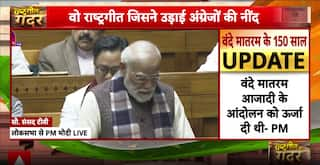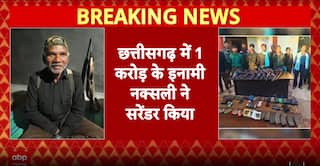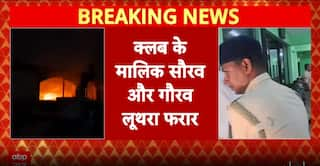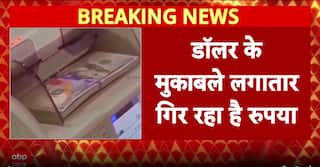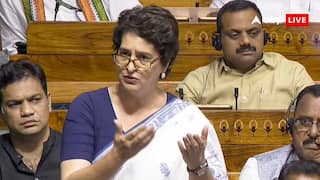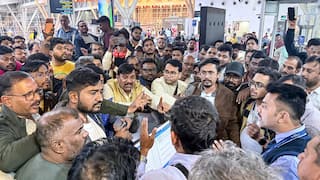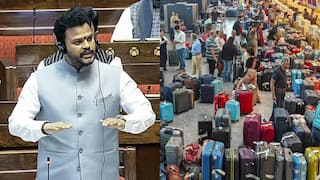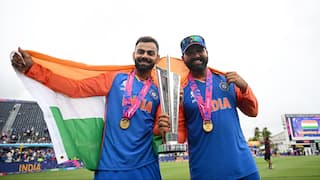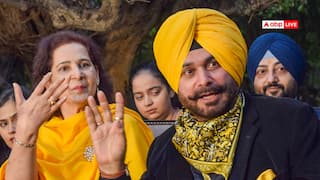Explorer
Move over Godfather, Sultan of Delhi is here

I met Arnab Ray on the Net quite accidentally. I stumbled upon his blog site, greatbong.net, one day while surfing the Net for Bengali bloggers and writers in the US. I can’t quite recall why I was surfing for Bengali bloggers and writers in the US, but I do remember that I was mighty amused by the banner: “Random Thoughts of a Demented Mind” that greeted visitors to the site.
That was many years ago. Since then, we have been social media friends and I have read his books with interest. My favourite still remains his first book, “May I Hebb Your Attention Pliss”, a Kolkata middleclass Bengali boy’s rollicking ride through adolescence to adulthood. He dropped in at my office when his next book, The Mine, was published. We had a long chat and became good friends.
I became fond of this bright computer engineer from Jadavpur University who wasn’t a run-of-the-mill Marxist or pseudo Maoist making a show of reluctantly accepting the good life across the Atlantic or the Pacific, depending the airlines one flies to reach either the east coast or west coast of America. It intrigued me that a research scientist working on artificial intelligence should be writing fiction. It intrigues me why someone working on cutting edge technology of the future would swap jobs to work on cyber security which is warfare of the future.
Between MIHYAP and his latest book, “Sultan of Delhi: Ascension”, that hit bookstores in India this week, Arnab has authored two other books, “The Mine” and “Yatrik”. His style has evolved and as a writer he has matured. The touching innocence of MIHYAP is lost but I guess that’s inevitable. I invited Arnab to blog at ABP and he happily agreed. I wish he were as prolific with his writing for ABP as he is with producing chapters for his publishers.
We chatted about “Sultan of Delhi” recently. Here are excerpts from that chat:
Q: "Sultan of Delhi". When one hears the name of your latest book, one immediately thinks of one of those historical novels set in the middle ages that crowd shelves in airports. And yet, it is a crime thriller. So how do you square the name with the theme?
A: I would call it a "multi-generational mafia saga". I don't want to repeat the book blurb in this interview, but in a line: "Sultan of Delhi: Ascension", published by Hachette, is about a man who runs the country through deceit, blackmail, violence and manipulation, and yet struggles to control his family. And his heart.
Q: You know that comparisons with Mario Puzo’s “The Godfather” are inevitable? That the theme has been done to death?
A: It is almost impossible to write a novel in the mafia genre, and not have snarky people calling it yet another Godfather wannabe. "Sultan of Delhi: Ascension" differs from “The Godfather” in one fundamental way. Puzo never tells you how Don Corleone runs his business, or how he becomes the Boss of all Bosses. “Sultan of Delhi: Ascension” does. It balances the public with the personal, the hows with the whys, and I know I am the writer and so I will be expected to say this, but in the end, I believe, “Sultan of Delhi” is a very unique experience, the core conflicts are nothing like those in Godfather, and the story of course is vastly different.
Q: One of the criticisms levelled against the crop of Indian writers writing in English is that their books are actually written for film. Since you had tweeted that “Sultan of Delhi” is currently in the middle of cinematic and TV adaptation negotiations, I thought this would be relevant to ask.
A: I don't think that any author actually writes thinking "Hey I want this to be a film and not be read by actual people". If they were, they would be writing a screenplay and that would indeed be quite unreadable. Having said that, I, as a person, am very influenced by films, particularly popular Hindi movies, and those who read my blog would know that. “Sultan of Delhi: Ascension”, spanning as it does the 1940s to the 1990s, has as a running motif, popular culture, and I would love to say more, but to quote someone all of us know, 'read the book to find out'.
Q: On the topic of "read my book to find out", as someone who is prominent and influential on social media, how does your outspokenness play out for you? Does it help or hinder your career as an author?
A: Oh, hinder mostly. Speaking your mind on social media, especially when it pokes some of our media superstars, is never good for business. There are some places you will never be invited to, some forums that are shut out to you for good. But if there is one thing I cannot be is not be me. So, I just let it rip.
Q: Call me old-fashioned, but I am always slightly uncomfortable when I see writers themselves plugging their books on social media. Shouldn't writers just 'write' and leave the marketing to the publishers?
A: I wish it were so. Today, it's as much the author that's being sold as the book. I think the marketing term for this is "personal branding". If your brand is already established, then you don't have to be so overt with marketing, invitations to prime time shows and single panels at literature festivals to plug your book come naturally. But if you are not, you have to cut your own path. For me, my own social media channel is all that I have, and hence that's all I can use. I realise my plugging my own book may be off-putting for some, or the tweeting of praise, and I wish there were some other way, but there isn't. If I don't have a personal brand, and I do find that phrase discomfiting, there won't be any more writing, at least not in commercial fiction.
Q: How does your creative process work? Do you write in sequence, or jump about, or create an outline?
A: I always conceptualise the end first. Always. Once I have a strong idea of how I end, I work backwards. I did it with "The Mine", I did it with "Yatrik", and now with “Sultan of Delhi: Ascension”.
Q: Talking about your other books, why do you keep hopping genres? Isn't that a bad thing?
A: Commercially yes. Because you don't build a community of readers like you do when you restrict yourself to a genre. But the way I see it, I write the book I want to read, not the one that will sell. And since my reading tastes span genres, why should not my writing?
Q: So what's the next genre? Romance?
A: Thankfully no. This time it's a mystery. “Mahabharata Murders”, to be brought out next year by Juggernaut. It received a large number of publisher bids when it was on the market, more than any of my previous books, and I look forward to it. But for now, my full attention is on “Sultan of Delhi”.
Q: What's the future of publishing?
A: Digital and mobile. Our lives no longer allow us the time to sink into bed with a book and stay immersed for hours. Instead we have to squeeze out ten minutes here, fifteen there, and when we do, the only thing we have with us is our mobile. Right now, that time is used for social media and mobile games, and the challenge for publishing is to cut into that space. Which means innovative pricing and packaging of books, and for publishers to redefine their value propositions to authors.
Q: And what's the future of Arnab Ray?
A: More blogs, more books, more tweets...and a whole lot of dreams. More readers, greater reach and a cinematic adaptation or two of my works won't hurt either.
Disclaimer: The opinions, beliefs and views expressed by the various authors and forum participants on this website are personal and do not reflect the opinions, beliefs and views of ABP News Network Pvt Ltd.
Follow Blog News on ABP Live for more latest stories and trending topics. Watch breaking news and top headlines online on ABP News LIVE TV
View More








